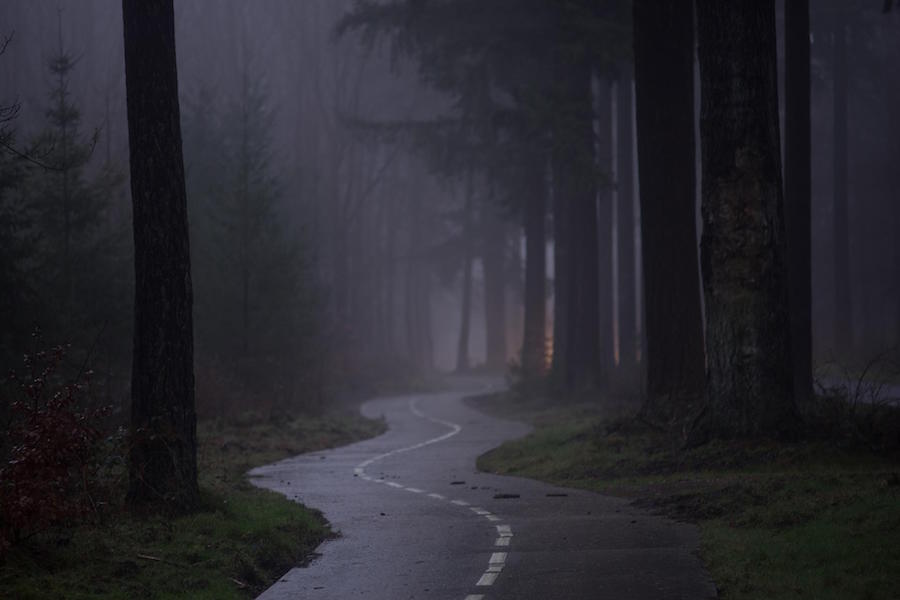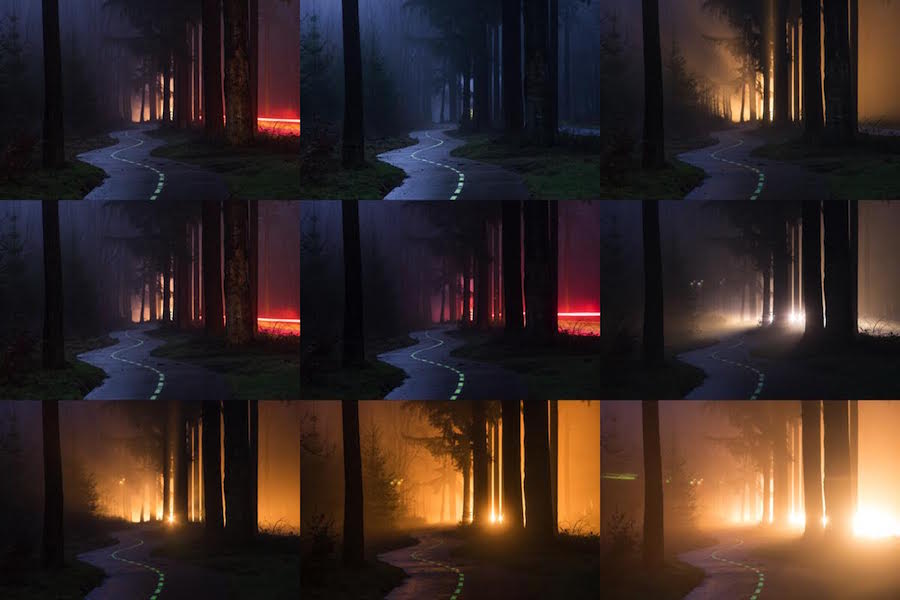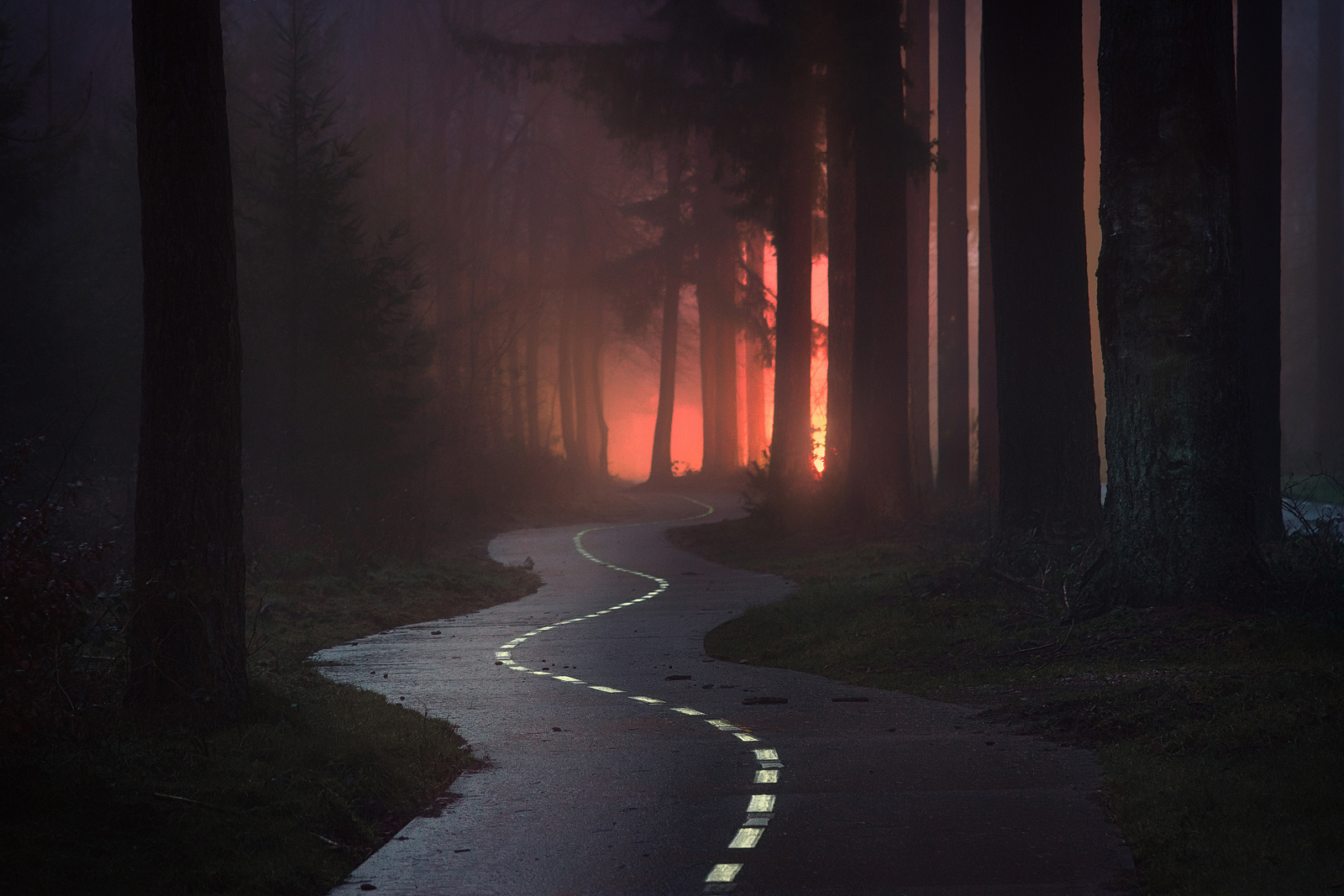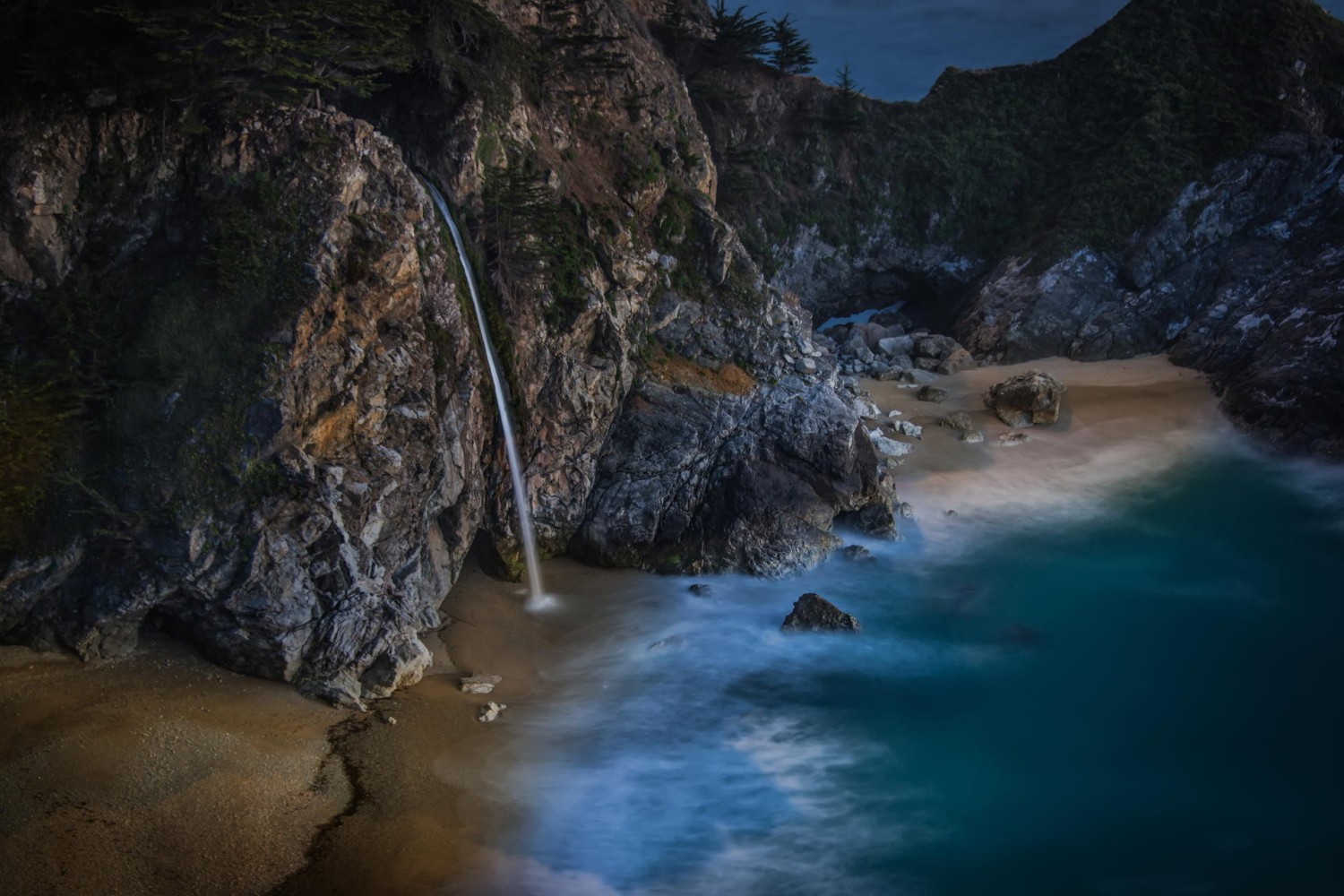Albert Dros is an award-winning photographer from the Netherlands who has been published by Time Magazine Online, National Geographic, The Daily Mail UK, The Huffington Post, and, of course, 500px ISO.
To see more from Albert, be sure to give him a follow on 500px, visit his website, or show him some love on Facebook, Instagram, and Twitter.
My photo ‘Zig Zag’ has gotten many positive responses since I first posted it last week, so I thought I’d dive into how this photo came about here on 500px ISO.
There were lots of different views on this photo. Words often mentioned were ‘drunk’ and ‘forest fire.’ Of course people were thinking about being drunk because of the road—roads are normally straight—and the light at the end signified fire for most people. This creative shot came without planning. It was just a random scene I spotted during a photography session in a forest called ‘The Speulder Forest’ or ‘The Forest of the Dancing Trees’ in the Netherlands.
That evening it was misty. Sometimes misty weather can be amazing for taking atmospheric photos, especially in the forest. I arrived at the parking lot near the end of the afternoon.
The atmosphere was quite like a mystery… very humid and foggy. Good circumstances to make some moody photos of the forest, one might say. Unfortunately, the mist was not quite thick enough to show up great on the photos. My standards are always high and I am not satisfied easily.
And so, after a walk through the forest, I eventually ended up walking back to my car. It was during my way back that I encountered this curvy path. I am not a newcomer to this particular forest and I had spotted this path a few times earlier already, but never with this particular atmosphere. It looked different today.
That day I brought my Sony A7II with a manual 135mm f2.8 Minolta with adapter. This is one of my favorite lenses for forest photography. No zoom, keeping it simple, keeping it basic; this often enhances ones creativity. Plus, the longer focal length made the curvy path squeeze nicely into the frame.
I captured a couple of test shots until I realized it would be cool if there would be some light at the end of the road. I could easily realize this vision because there was a road with cars next to the path and cars with lights often came driving by, so I decided to use that light to light the scene.
The light I wanted should be at the end of the road and not at other places. Execution would be quite tricky, and I had to take a lot of shots to get it right. Timing was crucial. I might have to layer multiple shots to get the perfect shot in the end, but the base had to be right.
With this in mind, I got to work. At that time it wasn’t that dark yet, but dark enough to properly see the car lights. I started taking photos:

As I drove home I kept thinking of this particular shot. Actually, the contrast wasn’t quite right. And how do you improve that? By waiting a bit longer for some more darkness that causes more contrast between the car lights and the daylight of course. Stupid that I didn’t think of that before. I could have waited a bit longer to perfect the shot.
I wasn’t that far yet, so I turned my car around and started driving back. I wanted to get this shot in a perfect way. As a photographer you might know this feeling of always trying to get the perfect shot. 10 Minutes later I was back at the parking lot, ran back to the spot, and quickly set up my gear.
I had to hurry because it was getting dark quite fast and I didn’t want it to be TOO dark—then the contrast would be too much. Luckily, I was just in time, and I immediately saw that the shots would be better. The contrast was actually perfect. Timing was crucial, so I had to bump up my ISO a bit to not get too long a shutter speed. I made a bunch of photos with different car lights:

I took shots of cars both driving away and coming at me. Both gave a different feeling to the scene. After shooting a lot of different light, I was finally satisfied. It started to get too dark anyway and I again decided to drive home.
Back at home I knew that my footage was good and I could process my vision into the final image.
I opened all the images and decided to use the middle one (in the grid you see above) as a base. The light was kind of perfect here, the way I envisioned it… the only problem was the streak from the car lights. This was too distracting.
To remove this I used the ‘empty’ shot without any form of car lights (the one upper middle). By using this shot I could effectively remove the car streak from the base image. I also used the upper right shot for about 20% to get a bit of more atmosphere in the yellow light. This is how the final shot was built.
After this I applied some basic color correction. I didn’t have to do a lot as the colour and light was already close to perfect:
The final shot was built out of creative thoughts. It’s a shot that originated by seeing this random scene and ideas that rose from this vision. Sometimes it just happens. It’s all about capturing, processing, and eventually getting that idea on the final image just how you had seen it in your vision.
These kinds of images are often the most fun and interesting to create. I travel a lot, photograph a lot of beautiful landscapes, and always try to capture them in the most perfect way possible.
But photos like ‘Zig Zag’ are images that you can shoot basically everywhere, around the corner. It’s a combination of spotting the right elements, finding the right light, forming your own ideas, and executing them according to your vision.








Leave a reply